12 Foods That Can Cause Constipation And How To Prevent It
Avoiding the foods that trigger constipation is one of the best strategies to relieve the issue.

Image: Shutterstock
Reduced bowel movement, bloating, gas, and stomach cramps are the symptoms of constipation. No matter how much time you spend in the washroom or how much water you drink, you cannot resolve the issue if you continue to consume foods that cause constipation. The best way to improve your bowel movement is to eat the right foods regularly and change your lifestyle for the better. Ditch the laxatives and other medicines – as they only offer temporary respite. Here is a list of foods you must avoid to prevent constipation and a list of foods that offer long-term relief from the issue. Continue reading.
In This Article
Symptoms Of Constipation
Constipation is a common digestive issue characterized by infrequent bowel movements and difficulty in passing stools. The symptoms of constipation vary from person to person but commonly include (1):
- Difficulty passing stools
- Lumpy or hard stools
- Straining or pain when passing stools
- Fewer than 3 bowel movements per week
- A feeling of fullness
- Bleeding from the rectum
- Lower back pain
- Unexplained weight loss
- Fever
- Nausea
- Loss of appetite
- Abdominal pain and bloating
- A sudden change in bowel movements
- A feeling of incomplete evacuation
- Bloody stools
Now that you know about the symptoms of constipation, check out the next section for the top foods to help you manage this condition.
Key Takeaways
- Changing your eating habits may help solve constipation issues.
- Include foods high in dietary fiber in your diet to ease the condition.
- Having nuts or dried fruits a day may help relieve digestion issues.
- It is best to avoid processed and dehydrating foods and dairy products if you have constipation.
12 Foods That Cause Constipation (AVOID THESE)
1. Unripe Green Bananas
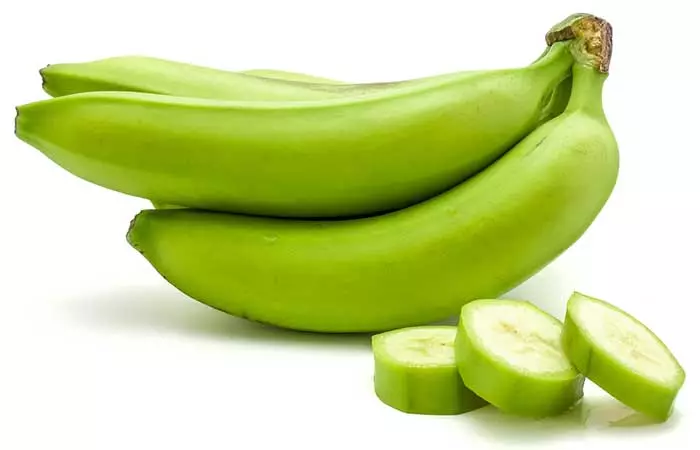
Bananas, in general, are healthy. But unripe bananas may cause constipation (2). This is the reason they are used as a home remedy for an upset stomach. About 70-80% of the net weight of a green banana is resistant starch, a complex carbohydrate that has dietary fiber-like property. And though fiber is known to help relieve constipation, this particular type of dietary fiber is tough for the body to digest. So, avoid consuming green bananas if you are constipated.
2. Chocolate

Sorry to break this news to you, but yes, chocolate causes constipation. Especially milk chocolate. The humongous amount of fat in chocolate slows down digestion and peristalsisi A series of symmetrical contractions and relaxation of muscles that help food move through the digestive tract. or movement of food through the digestive tract, thereby leading to constipation. In fact, the cocoa beans with husks are said to reduce constipation, but since most milk chocolates are devoid of it, having too many chocolates or chocolate products can lead to constipation (3).
3. Caffeine
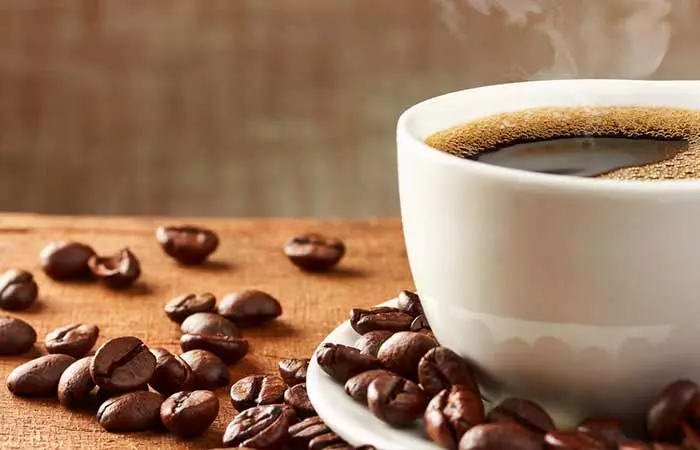
Who doesn’t love the smell of freshly brewed coffee/tea? Aromatic and soothing! But drooling time’s up, the reality is it causes constipation. Drinks that contain caffeine, including energy drinks, black coffee, coffee with cream, decaf coffee, tea, tea with cream, hot chocolate, soda, etc., are a strict no for you. Caffeine tends to draw water from the colon when consumed in excess. However, when consumed in limited amounts, caffeine can stimulate bowel movement (4). So, be careful about the amount of caffeinated drinks you consume per day.
4. Processed And Frozen Foods
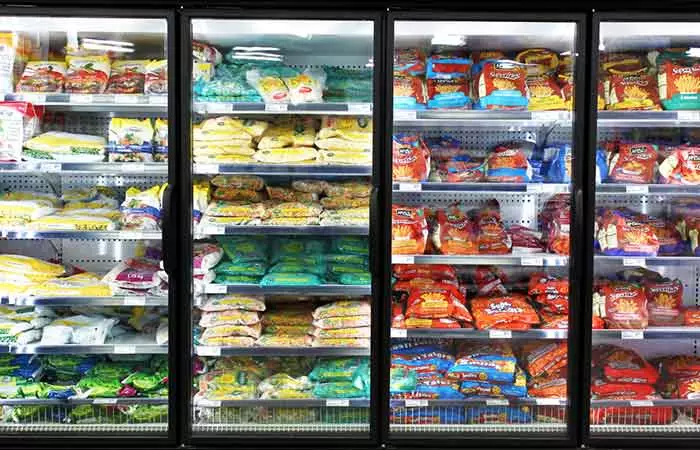
Frozen and processed foods may be convenient, but they are dangerous for you in every way. Foods like salami, sausage, frozen meals, and ready-to-eat foods are loaded with preservatives, are high in sodium or sugar content, and have added flavor and color. To digest all of these complex and artificial additives, the digestive system has to work extra hard. This, in turn, weakens the digestive system, leading to various gut problems, including constipation (5). Stop consuming these foods right now.
5. Gluten
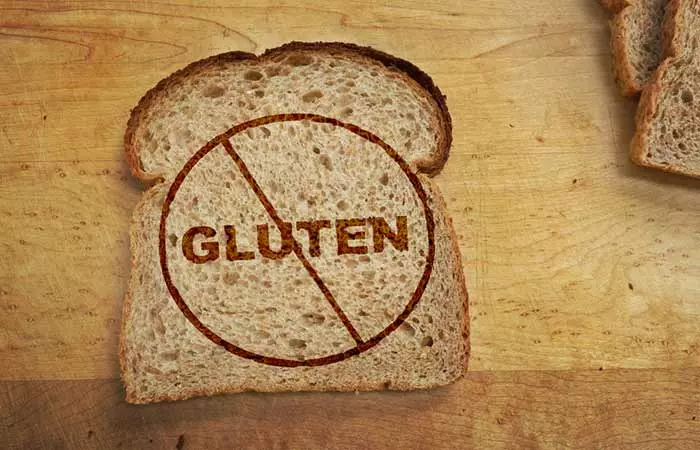
Gluten is a binding protein found in wheat, semolina, rye, and barley. It gives the food its shape and holds it together. But a majority of people are gluten sensitive and may suffer from constipation. Not all gluten sensitive individuals experience constipation, but those with Celiac diseasei An autoimmune or chronic digestive disorder in which the small intestine is sensitive to gluten. should completely avoid gluten products (6).
6. Persimmon
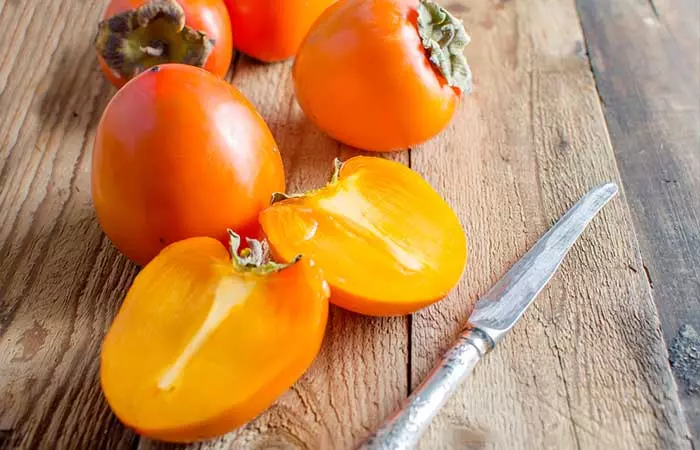
Persimmon is a delicious orange tomato-like fruit that is loaded with nutrients. And there are two varieties – sweet and astringent. The astringent variety can cause constipation (2). And that’s because it contains a lot of tanninsi Water-soluble chemical compounds found in many plant-based foods that are responsible for protein digestibility and growth rate. that tend to slow down food movement through the digestive tract and reduce gut secretions (7). So, consume the sweet variety and not the astringent one.
7. Red Meat
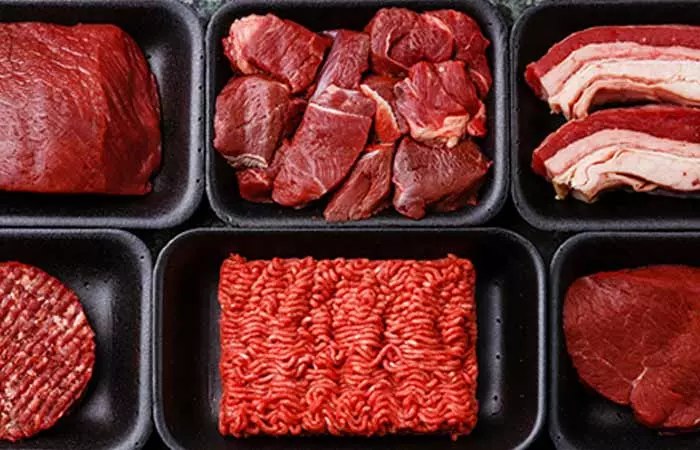
Consuming high protein diets rich in red meat can cause constipation as it is high in fat and iron and has protein fibers that are tough to digest (8). So, it is best to avoid consuming red meat like beef, ground beef, lamb, pork, venison, veal, and goat.
8. Crackers

A cracker is a flat biscuit made with baking flour. And though it may seem the perfect snack, it can cause constipation. In fact, any biscuit made from baking flour tends to slow down bowel movement. So, avoid consuming these when you feel constipated. According to a study, constipation is relieved more by rye products than wheat made products (9).
9. Alcohol

Alcohol consumption has consumed most of us, especially because we tend to go overboard with it. It can cause constipation, nausea, and headache because it is dehydrating. And low water intake when you have alcohol may prevent the cells from working. And as a result, the cells draw more water from the wastes in the digestive tract. This, in turn, prevents bowel movement and causes constipation (10). Avoid alcohol completely if you regularly suffer from constipation. Or drink as much water as you can when you consume alcohol.
10. Too Much Dairy Products

Dairy products like milk, yogurt, cheese, and ice cream can cause constipation when taken in excess. The lactose in dairy products has been found guilty of causing gas and bloating. Cheese often causes constipation in adults. A study conducted on Iranian children aged 1 to 13 observed that dairy products were the cause of their constipation (11). Nearly 80% of the children who eliminated cow’s milk and dairy products from their diet had more regular bowel movements. However, this does not mean that dairy products do not have any health benefits and should be eliminated completely. To avoid constipation, it is advisable to consume them in moderation as part of a high-fiber diet.
11. Fried Or Fast Foods
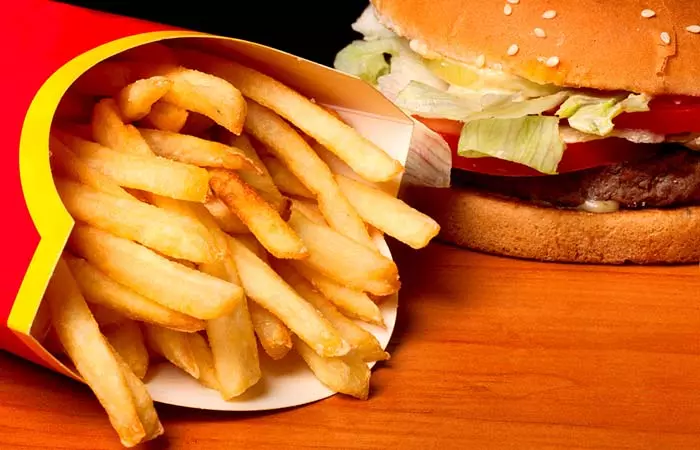
Fried and fast food are food trends that need to go away. These are the main reasons for many health issues like obesity and heart diseases. Since these foods are also high in sodium and artificial food additives, they tend to slow down the passing of food through the colon, leading to constipation. If you are someone who has at least one meal consisting of fast or fried foods, you will be at risk of not only constipation but also many other health issues (12) (13). Stop eating these – the sooner, the better. Avoid them completely if you suffer from constipation regularly.
12. Chips
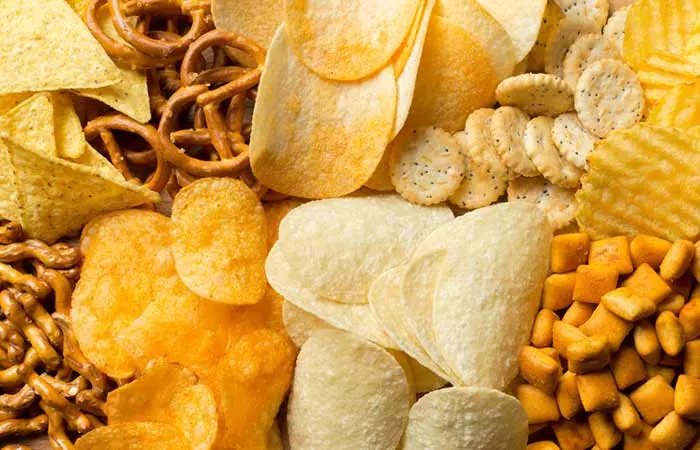
The last, but not the least. Without blinking your eyes, you can finish a big bag of chips. The perfect balance of salt and sugar in the chips makes it really tough to stop once you have started. But did you know that apart from making you gain weight, they can also cause constipation (13)? Yes, chips are fried and high in sodium. Avoid consuming too much of them or just banish them from your house.
 Did You Know?
Did You Know?A survey conducted on 4,702 participants who experienced constipation found that 3 of 5 Americans never discussed their symptoms with a healthcare provider. Out of all the respondents, only 37.6% of them consulted a clinician for their condition, with only 26.0% consulting a gastroenterologist.
These were the 12 constipation causing foods. Now, let’s take a look at foods that relieve constipation. Yes, listed below are some foods that make you poop!
10 Best Foods For Relief From Constipation (CONSUME THESE)
1. Papaya
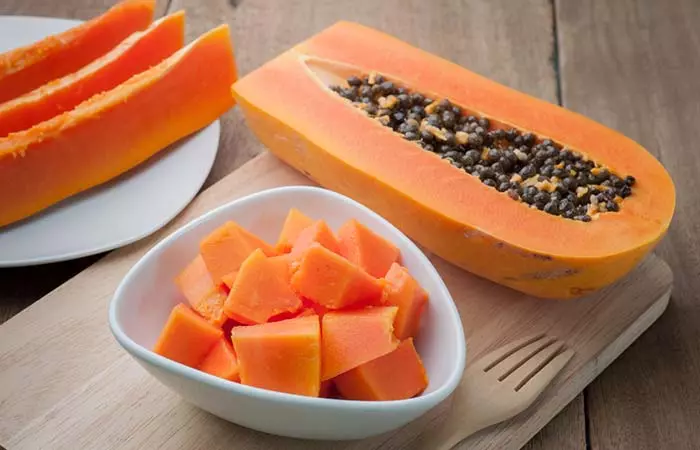
This golden orange tropical fruit is loaded with a digestive enzyme called papain and has a good amount of dietary fiber (14). Papain helps in digestion, and the dietary fiber aids good peristaltic movement of the digestive tract, thereby helping relieve constipation. This is one of the most commonly used home remedies for constipation.
2. Prunes
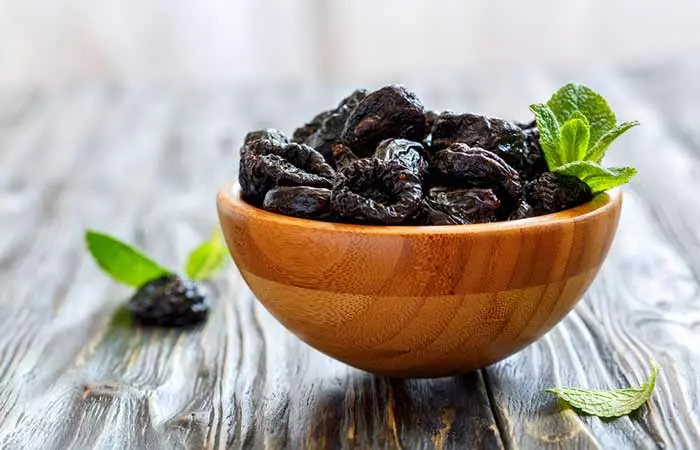
This juice is hailed as one of the best juices for constipation. Prunes are loaded with soluble and insoluble fibers. Drinking prune juice in the morning and during your evening snack time can help stimulate bowel movement (15). Drink this regularly to prevent constipation and keep your colon clean.
3. Kiwi
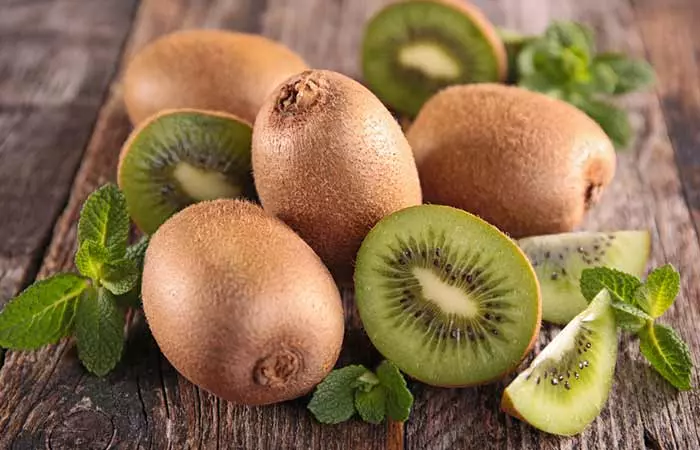
This luscious green, sweet and sour fruit tastes amazing and helps support digestion, absorption, and excretion. Kiwis are high in dietary fiber and have a stimulatory effect on the colon. They are beneficial for people with constipation, gastrointestinal disorders, and irritable bowel syndrome (16). Therefore, consume at least one whole kiwi before lunch or as an evening snack to provide your body the nourishment it deserves.
4. Berries
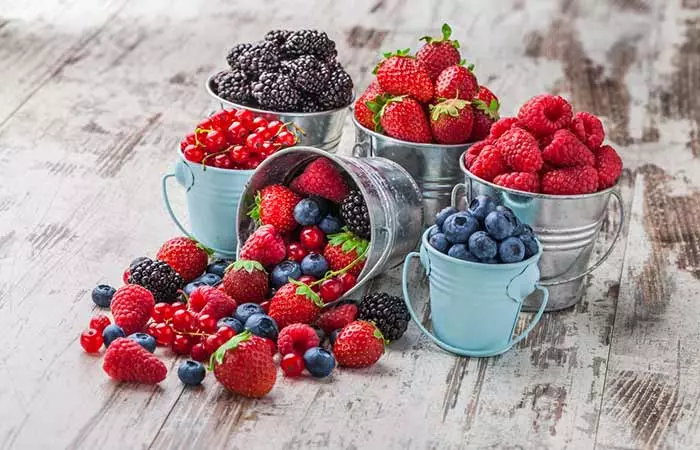
Berries like strawberries, blueberries, and blackberries are good sources of dietary fiber (soluble and insoluble) that stimulates peristaltic movement. They also provide a healthy dose of vitamins and minerals. Have a cup of mixed berries every day to help prevent constipation (17).
5. Popcorn
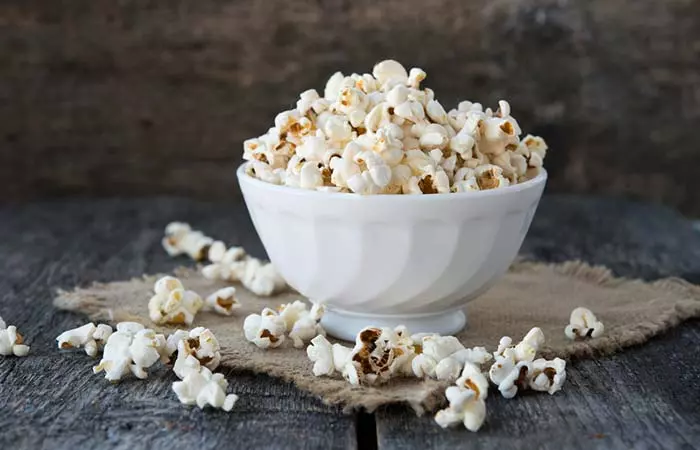
Finally something on the list that’s crunchy, fun, and can be made and eaten any time of the day! Popcorn is a high-fiber, low-calorie snack that helps add bulk to the stool, improves bowel movement and constipation, soften feces, and stimulates colonic emptying (18). It is one of the healthiest snack options that help provide a balanced diet . Have one medium bowl of unsalted popcorn every day.
6. Whole Grain Bread
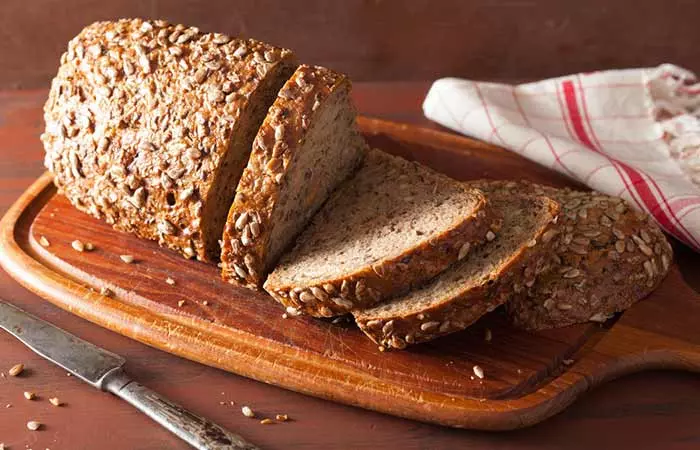
Whole grain bread is loaded with soluble and insoluble fibers (19). Since dietary fiber helps draw water and adds bulk to the waste in the colon, passing stool becomes easier. So, avoid refined grains and white bread and switch to whole grain bread and have 2-3 slices of it every day.
7. Pears, Plums, And Apples
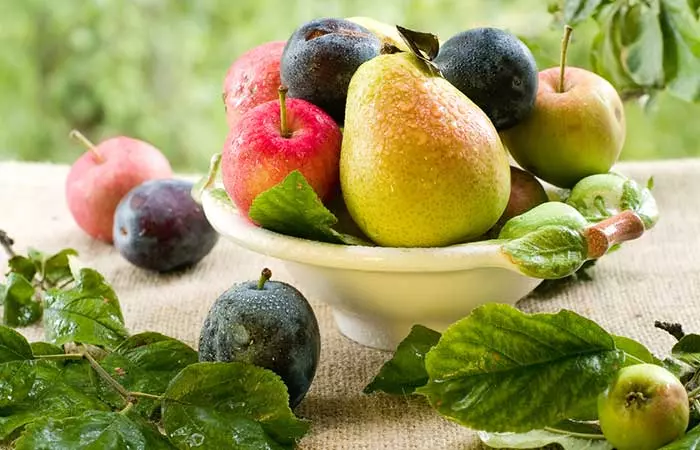
Apples, plums, and pears are not only good sources of vitamins and minerals but are also loaded with dietary fiber (20). You can consume half of each of these fruits or may have each of them on different days of the week.
8. Flaxseeds
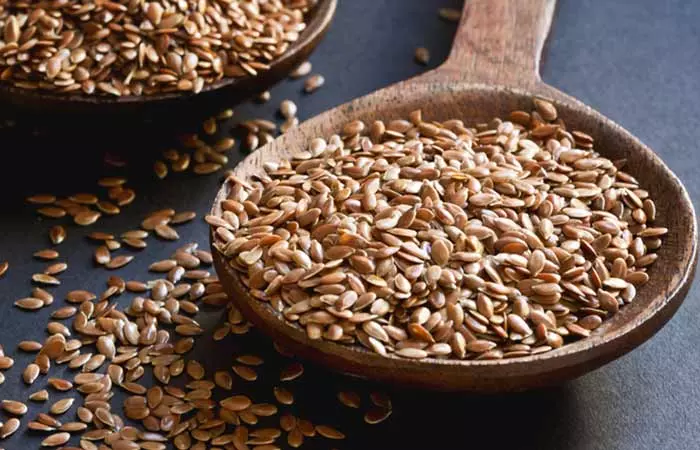
Flaxseeds are a great source of healthy fats, which is why they are known to aid weight loss. One of the reasons they cause fat loss is that they are high-fiber seeds that stimulate bowel movement, thereby preventing constipation and improving digestion (21).
9. Broccoli
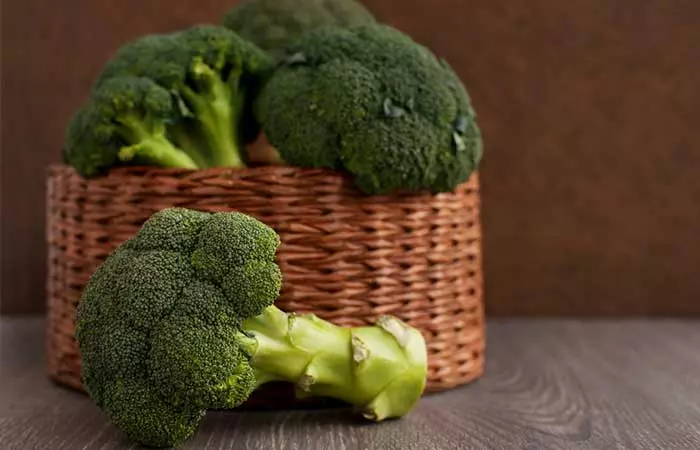
Broccoli can be super delicious if you cook it right. It can vanish your constipation, weight gain, and other health-related issues (22). A cup of blanched broccoli with other colon stimulating veggies and foods is all you need.
10. Dried Fruits
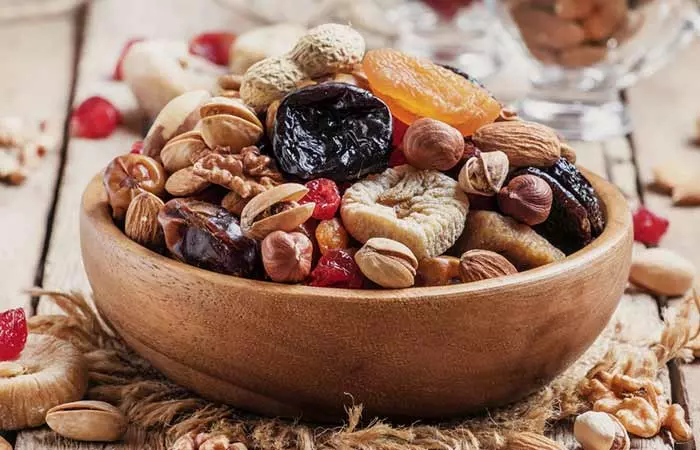
Nuts, apricots, dates, etc. are all good for relieving constipation (2). They are a rich source of fruit sugar, dietary fiber, vitamins, and minerals. Consume at least a fistful of dried fruits every day to flush out toxins from your colon.
Additionally, you should stay hydrated to avoid constipation. Drinking enough water softens the stool, easing bowel movements. You should drink at least eight glasses of water each day to aid digestion.
 Did You Know?
Did You Know?Infographic: Causes Of Constipation
Consuming items from certain food groups can lead to constipation or aggravate it. However, this gastrointestinal disorder can arise due to a host of other reasons as well. A few of these reasons may be due to external factors that you can address yourself, while others need to be treated by a doctor.
Check out the infographic below to get to the root cause of your constipation and resolve it effectively. Illustration: StyleCraze Design Team
If you seem to be dealing with constipation quite often, you must have a look at the type of food you are consuming. While avoiding foods that cause constipation like unripe bananas, chocolate, chips and crackers, coffee, white rice, unhealthy fats, spicy foods, junk and processed food can help, including papaya, prunes, kiwi, berries, and flaxseed in your diet can ease your bowel movements further. You should drink enough water and keep yourself active to aid a healthy gut movement as well.
Frequently Asked Questions
When is constipation an emergency?
If you happen to spot blood in your stool or have severe abdominal pain, consult your doctor immediately.
Where do you feel pain when constipated?
People suffering from constipation may feel a sharp abdominal pain or a feeling of tightness or fullness in the stomach.
Is pooping once every 2 weeks normal?
While people experience bowel irregularity from time to time, pooping once in two weeks may be a sign of constipation.
What does it mean when you feel like you have to poop but you can’t?
Difficulty in passing stools is one of the major symptoms of constipation. If you experience this along with other symptoms of constipation, seek medical care.
What vitamins can cause constipation?
Studies have linked vitamin D deficiency to chronic constipation (23). However, more studies are warranted to understand this theory further.
What lifestyle changes can help alleviate constipation?
You should eat fiber-rich foods, such as fruits, vegetables, and whole grains, and drink plenty of water to relieve constipation. In addition, regular exercise and bathroom routines and undergoing stress management will aid bowel health.
How does fiber intake affect constipation?
Consuming fiber helps reduce constipation in two ways. Firstly, fiber aids gut motility by maintaining healthy bacterial growth in the gut. Secondly, there are two types of fiber, insoluble and soluble. Soluble fiber makes the stool bulkier and softer, while insoluble fiber pushes the stool through the digestive tract, aiding better bowel movement.
Illustration: Foods That Can Cause Constipation And How To Prevent It
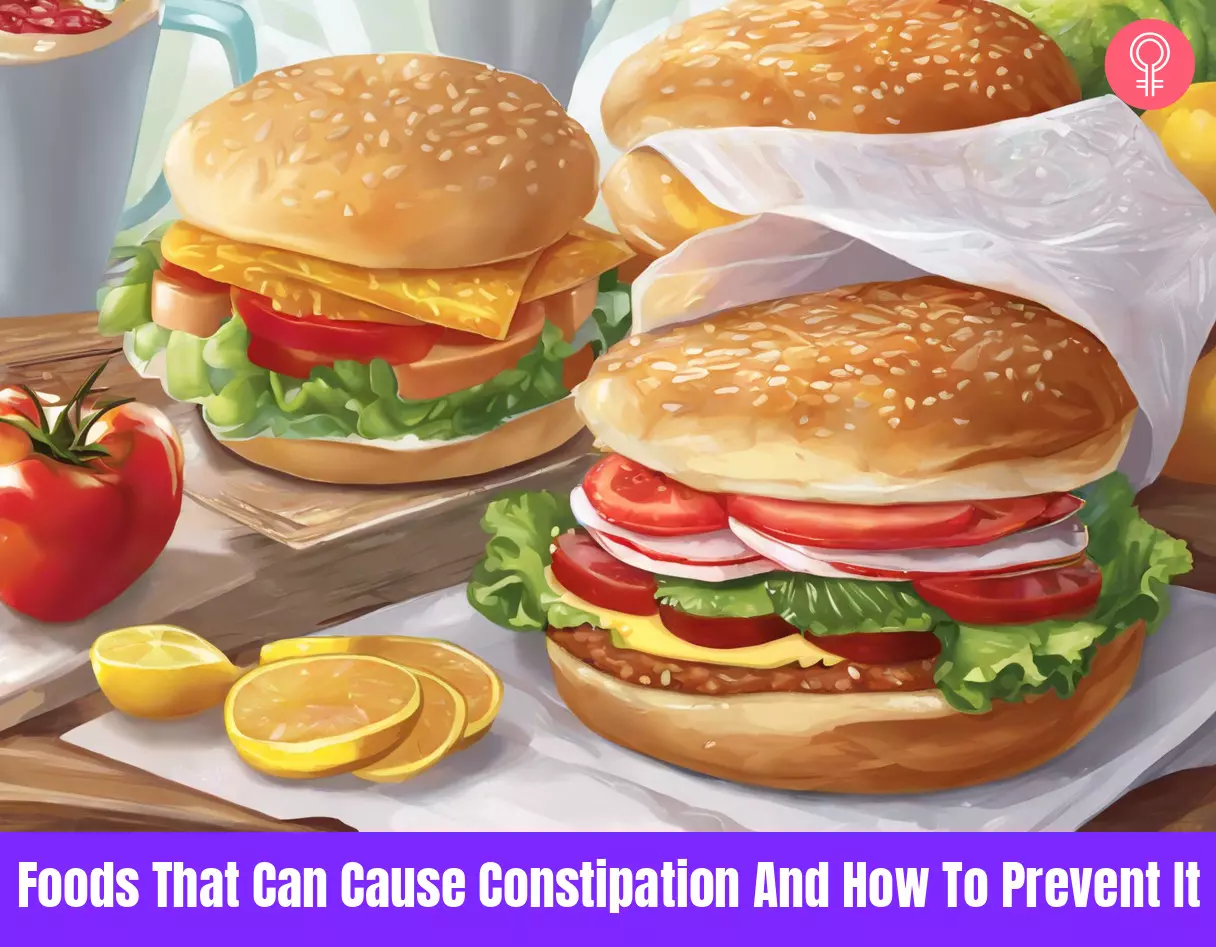
Image: Stable Diffusion/StyleCraze Design Team
Check out this video to understand the key foods behind chronic constipation. Get valuable tips to change your food habits and take actionable steps to make your gut healthy and happy.
References
Articles on StyleCraze are backed by verified information from peer-reviewed and academic research papers, reputed organizations, research institutions, and medical associations to ensure accuracy and relevance. Read our editorial policy to learn more.
- Constipation: Evaluation and Management
https://www.ncbi.nlm.nih.gov/pmc/articles/PMC6140151/ - Diets for Constipation
https://www.ncbi.nlm.nih.gov/pmc/articles/PMC4291444/ - The perceived effect of various foods and beverages on stool consistency
https://pubmed.ncbi.nlm.nih.gov/15647650/ - Effect of coffee on distal colon function.
https://www.ncbi.nlm.nih.gov/pmc/articles/PMC1378422/ - Association Between Ultra-Processed Food Consumption and Functional Gastrointestinal Disorders: Results From the French NutriNet-Santé Cohort
https://pubmed.ncbi.nlm.nih.gov/29904158/ - Celiac disease
https://www.ncbi.nlm.nih.gov/books/NBK441900/ - Persimmon fruit causing simultaneous small bowel and stomach obstruction
https://www.ncbi.nlm.nih.gov/pmc/articles/PMC6875815/ - Red Meat and Processed Meat
https://www.ncbi.nlm.nih.gov/books/NBK507976/ - Constipation is relieved more by rye bread than wheat bread or laxatives without increased adverse gastrointestinal effects
https://pubmed.ncbi.nlm.nih.gov/20089780/ - Constipation
https://www.ncbi.nlm.nih.gov/books/NBK513291/ - The Role of Cow’s Milk Allergy in Pediatric Chronic Constipation: A Randomized Clinical Trial
https://www.ncbi.nlm.nih.gov/pmc/articles/PMC3533146/ - Food Additives Gut Microbiota and Irritable Bowel Syndrome: A Hidden Track
https://www.ncbi.nlm.nih.gov/pmc/articles/PMC7730902/ - Specific foods can reduce symptoms of irritable bowel syndrome and functional constipation: a review
https://pubmed.ncbi.nlm.nih.gov/31080496/ - Nutraceutical Potential of Carica papaya in Metabolic Syndrome
https://www.ncbi.nlm.nih.gov/pmc/articles/PMC6682863/ - Systematic review: the effect of prunes on gastrointestinal function
https://pubmed.ncbi.nlm.nih.gov/25109788/ - The nutritional and health attributes of kiwifruit: a review
https://www.ncbi.nlm.nih.gov/pmc/articles/PMC6267416/ - The inhibitory effects of berry polyphenols on digestive enzymes
https://pubmed.ncbi.nlm.nih.gov/16498205/ - Effects of rice-based and wheat-based diets on bowel movements in young Korean women with functional constipation
https://www.ncbi.nlm.nih.gov/pmc/articles/PMC7606135/ - Effects of cereal fiber on bowel function: A systematic review of intervention trials
https://www.ncbi.nlm.nih.gov/pmc/articles/PMC4528039/ - Whole Fruits and Fruit Fiber Emerging Health Effects
https://www.ncbi.nlm.nih.gov/pmc/articles/PMC6315720/ - Flaxseed—a potential functional food source
https://www.ncbi.nlm.nih.gov/pmc/articles/PMC4375225/ - In vitro gastrointestinal digestion study of broccoli inflorescence phenolic compounds glucosinolates and vitamin C
https://pubmed.ncbi.nlm.nih.gov/14709026/ - Chronic functional constipation is strongly linked to vitamin D deficiency
https://www.ncbi.nlm.nih.gov/pmc/articles/PMC6465937/
Read full bio of Merlin Annie Raj
Read full bio of Ravi Teja Tadimalla
Read full bio of Payal Karnik







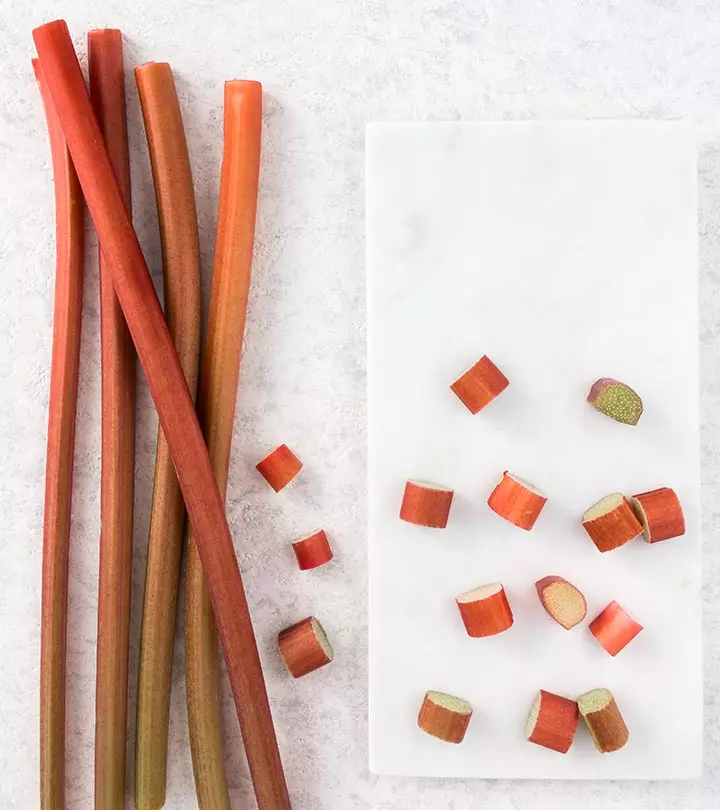
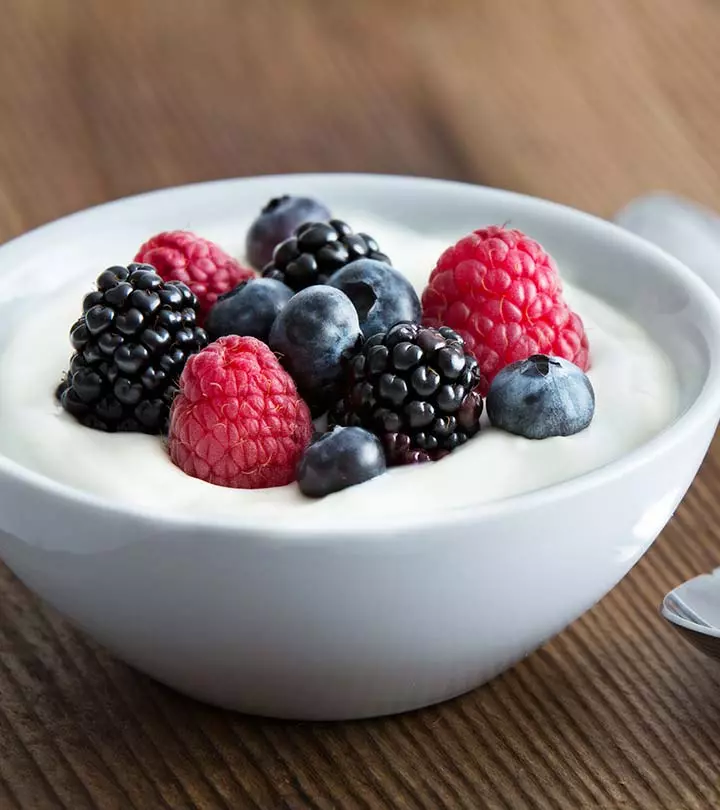
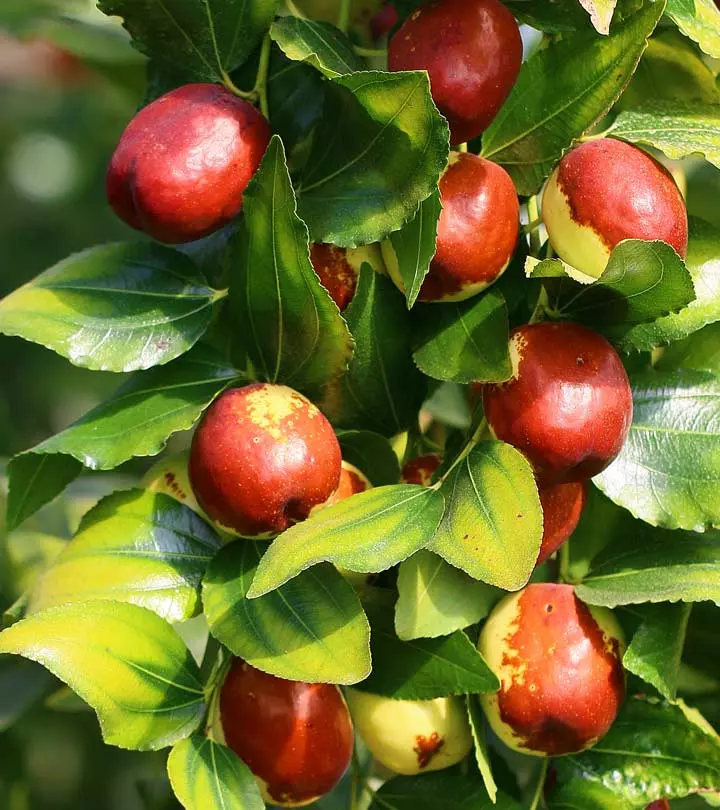
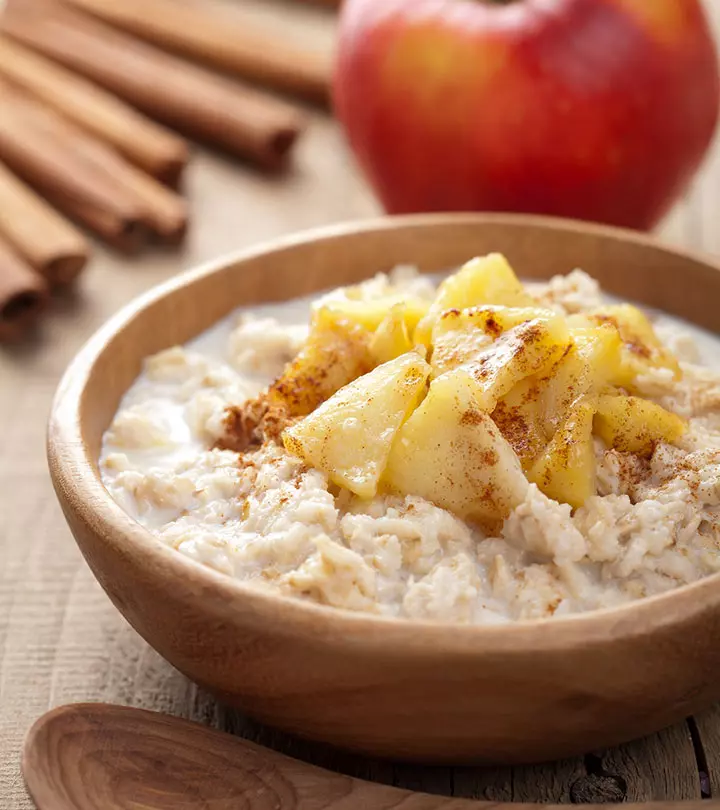
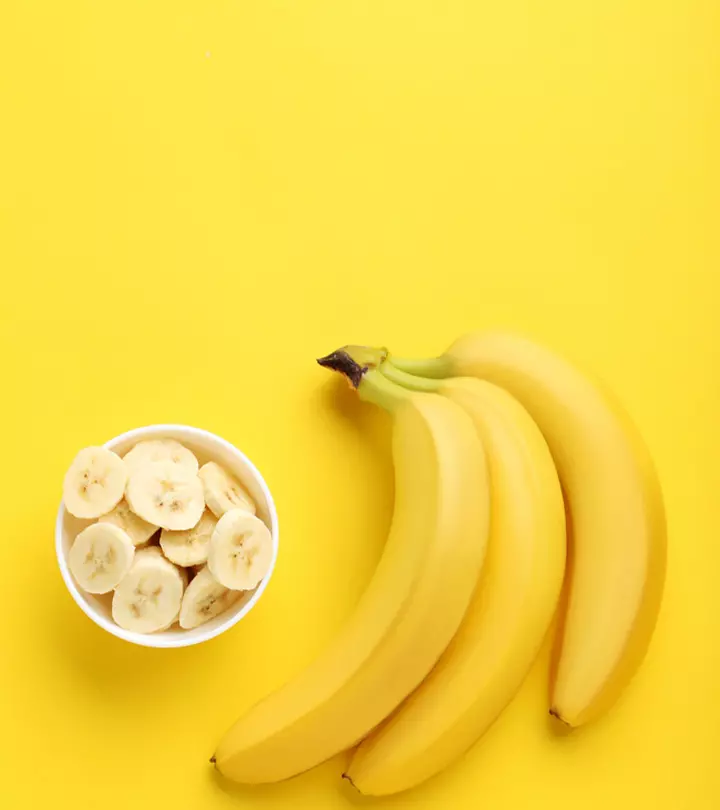

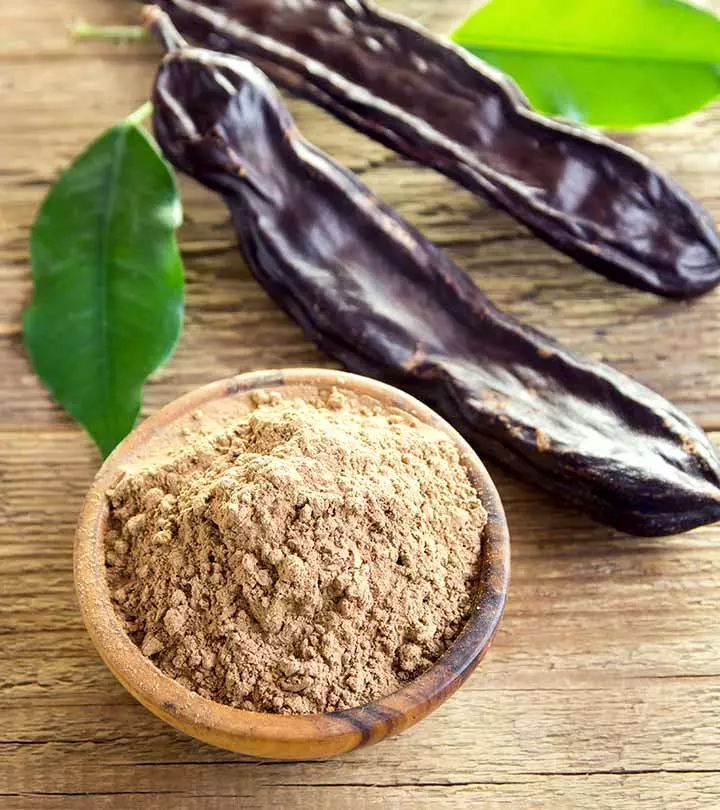
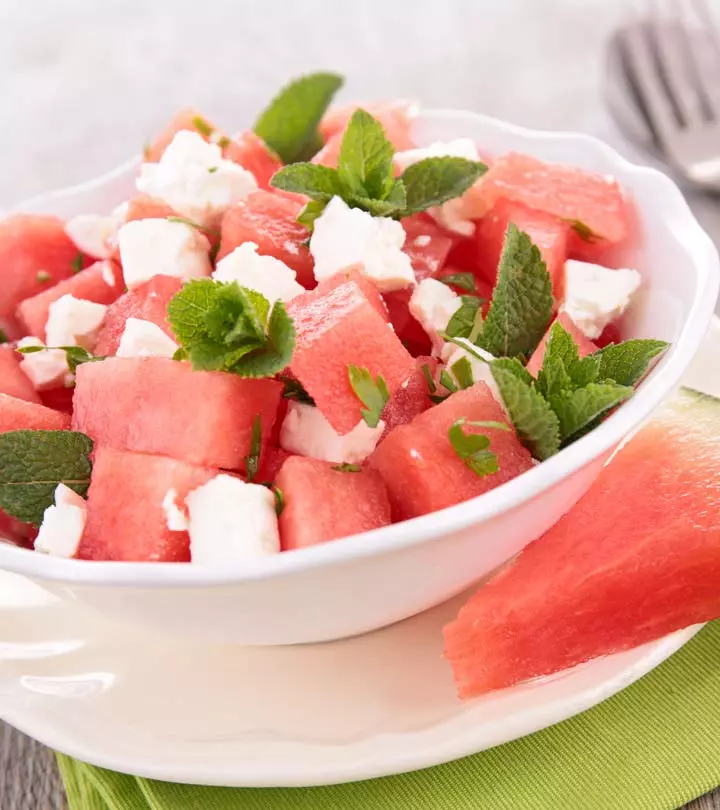
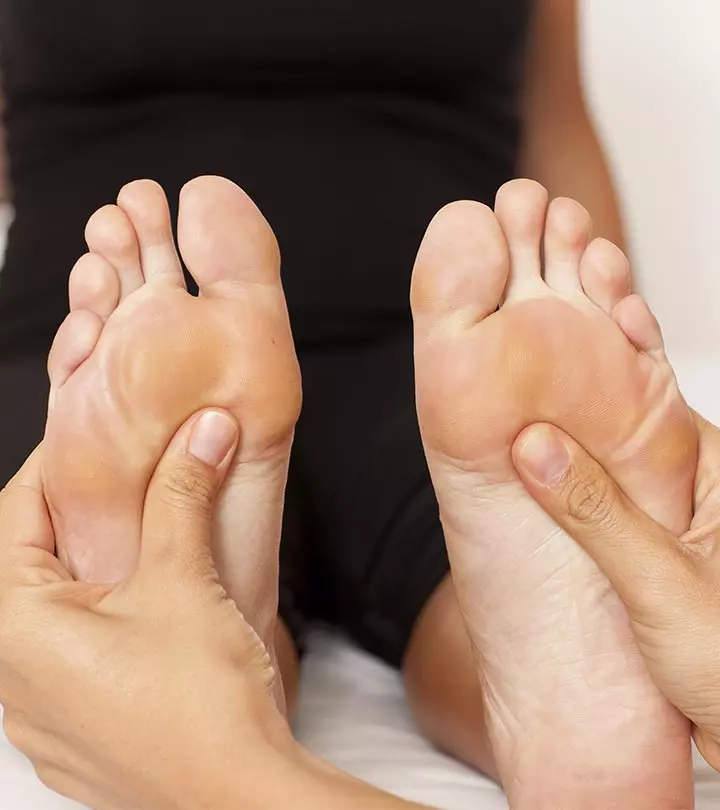









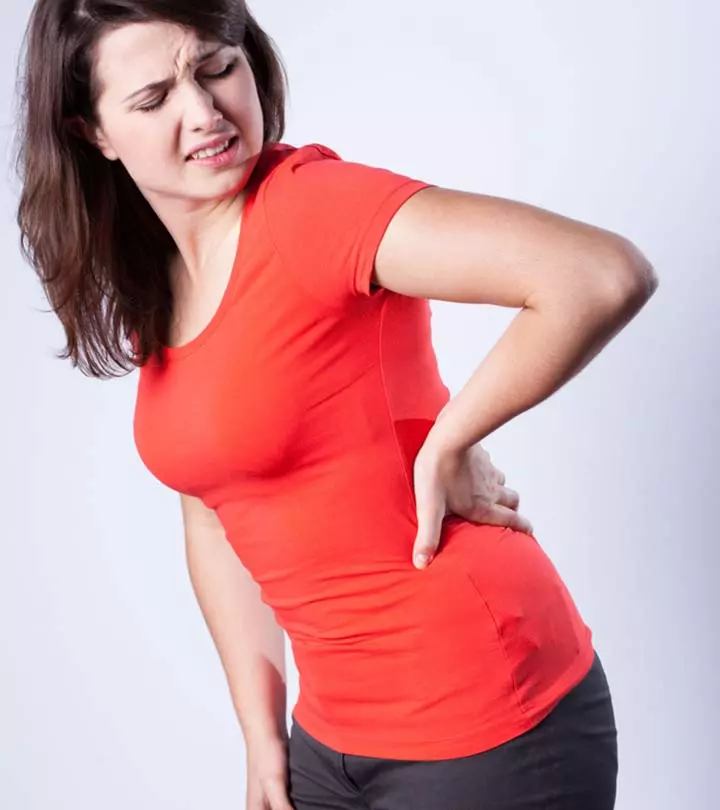

Community Experiences
Join the conversation and become a part of our empowering community! Share your stories, experiences, and insights to connect with other beauty, lifestyle, and health enthusiasts.